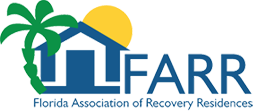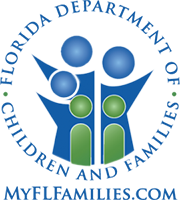
Dual diagnosis is a term to describe someone who has two or more mental health conditions. These may be diagnosed at the same time, or even years apart.
The Mental Health and Substance Abuse Connection
There is an undeniable correlation between substance abuse and mental health conditions, in fact, nearly half of people struggling with substance use have a co-occurring diagnosis. Three of the biggest contributors to this are:
- Changes to the brain. Both trauma and substances change the way our brain responds to stimuli, often decreasing impulse control and decision making.
- To cope with the discomfort of mental health conditions, people often self-medicate with drugs or alcohol, however, the risks of developing an addiction, as a result, are high.
- Substance abuse and mental health conditions share common risk factors. These include genetics, experiencing traumatic events, adverse childhood experiences, and a family history of addiction.
Common Co-Occurring Disorders
The connection between mental health conditions and substance abuse is widely researched because of how prevalent co-occurring are. In 2019, 9.5 million young adults (18-35 years old) were diagnosed with substance use disorder and a co-occurring mental health condition. The most common co-occurring disorders include:
Attention-Deficit/Hyperactivity Disorder (ADHD)
An ADHD diagnosis has been shown to increase the risk of developing substance use disorder. In addition, the more symptoms of inattention and hyperactivity symptoms the person displays, the higher the risk of addiction.
Post Traumatic Stress Disorder
PTSD diagnosis greatly increases the risk of addiction, some estimate as much as four times more likely than someone who does not have PTSD.
Personality Disorders
Research has shown that 35-73% of people with co-occurring diagnoses have personality disorders. The most common among these are borderline, antisocial, paranoid, and avoidant.
Mood Disorders
Roughly 20% of people with substance use disorder also have a mood disorder. Examples of mood disorders are depression and bipolar.
Anxiety Disorders
18% of those with co-occurring diagnoses have an anxiety disorder.
Signs and Symptoms of Mental Health Disorders
While each mental health diagnosis brings with it its own set of symptoms, they share commonalities that may help identify them. These can be:
- Suicidal thoughts or actions
- Physical discomfort without a cause
- Engaging in unsafe behavior
- Experiencing hallucinations or delusions
- Difficulty maintain hygiene
- Disconnecting from friends and family
- Irritability
- Denial of changes in their personality
- Disorganized thinking
- Paranoia
- Experiencing mood swings
- Changes in sleeping habits
- Loss of interest in hobbies
Benefits of Dual Diagnosis Treatment
To best treat dual diagnoses, it is recommended clients receive treatment that aims to treat both diagnoses. Because each is a risk factor for the other, it is important to address both at the same time. Benefits of dual diagnosis treatment are:
- Increased likelihood of remaining sober
- Fewer hospital visits
- Increased ability to maintain employment and live independently
- Reduction in symptoms associated with mental health conditions
- Increased reports of overall happiness
- More likely to remain engaged in treatment
What is Dual Diagnosis Treatment Like?
Dual diagnosis treatment focuses on treating the “whole you” meaning you are addressing mental, physical, and behavioral aspects to help you navigate life without the use of drugs or alcohol. Every treatment center is different, but effective centers share these important aspects of treatment. Dual diagnosis treatment should include personalized treatment plans that are unique to your needs and situation.
There will also be a variety of different therapies to help you process the root causes of your addiction and learn effective coping skills. Dual diagnosis treatment can come in the form of inpatient, outpatient, or detox programs depending on your level of need.
Dual Diagnosis Treatment at The Source
The Source is not your average addiction treatment center. We have built a strong community and a reputation for providing genuine compassionate care that explores and heals the deeper root causes of addiction. We want to give everyone who reaches out to us the best possible chance of freeing themselves from active addiction once and for all. This includes diagnosing and treating underlying mental health conditions that co-occur with addiction, resolving trauma and its lasting impacts, and more. For more information on dual diagnosis treatment, or any other aspect of treatment at The Source, call (800) 204-0418. You can speak directly with a member of our treatment team anytime day or night.
 The Source quite frankly saved my life and got me back on track, never giving giving up on me. When you are thinking about and looking through all of the different places to go for treatment this is the one that should stand out from the rest.
The Source quite frankly saved my life and got me back on track, never giving giving up on me. When you are thinking about and looking through all of the different places to go for treatment this is the one that should stand out from the rest.




























